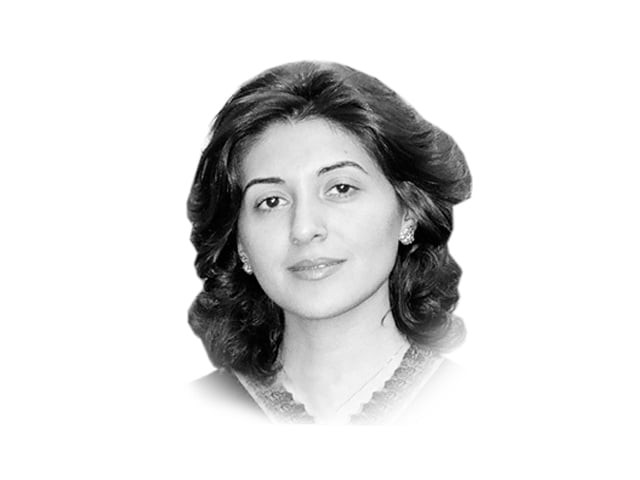The information war
The only method of ensuring a Pakistani perspective on the world stage is by initiating a Pakistani channel in English

When Al Jazeera English first tried to broadcast in the US, the Wall Street Journal ran an editorial dubbing it “English Terror TV”. By creating this imaginary fear factor, the American right wing succeeded in permeating mainstream thought such that, cable television in America is limited to domestic news channels or sufficiently unthreatening international ones, such as BBC America. As a result, while cable television viewers in Britain are able to get their information from a variety of sources, including Al Jazeera, Iran’s Press TV, France 24, Russia Today, Chinese CCTV, Indian NDTV and others, American viewers are comparatively unaware and have been prevented from enhancing their understanding of world events.
Notably, by creating obstacles in the free flow of information, American cable operators have not harmed the likes of Al Jazeera — as even Hillary Clinton had to acknowledge its reporting during the Arab Spring — but have severely impeded the ability of American citizens to keep pace with a globally changing environment. America may be a superpower today, but as we move towards a multipolar world, the test of its strength will be in how well it adapts to the emergence of rivals and alternative power centres. In that sense, both the US and the likes of Mr Quraishi in Pakistan would do well to learn from the British model. Britain, having lost its colonial empire, adapted skilfully to its declining power and hence, managed to remain a key world player. One of Britain’s strengths is its ability to tolerate alternative viewpoints, which encourages a stable society relatively free of extreme reactions and a wiser general population.
Mr Quraishi insisted that by being taken off the air, BBC has learned its lesson and will, in future, take cognisance of the Pakistani point of view in its documentaries. This is highly unlikely. The only sure method of ensuring a Pakistani perspective on the world stage is by initiating a Pakistani channel in English, as all the guests on the show concluded and as I had written in an opinion piece for The News (December 13, 2008), shortly after the Mumbai incident.
Ironically, Pakistan’s third attempt at an English channel has recently folded due to revenue issues. But this is hardly surprising given the nearly exclusive domestic focus of the channel. Why should I watch Sheikh Rashid or Veena Malik struggling with their English when I can get the same news a lot more comprehensively by switching to an Urdu channel? In order to be successful, a Pakistani channel in English cannot just rely on the fringe non-Urdu speaking diplomats in Islamabad. Instead, it would need to find its primary audience outside of Pakistan, and, in addition to domestic news, focus on international news from a Pakistani perspective and cater to/involve the large diaspora including second and third generation Pakistanis who care about Pakistan but are not fluent in Urdu.
With a plethora of channels to choose from, I must confess I do not watch BBC and CNN as much as I used to. France 24, for instance, offers excellent coverage on the Arab Spring, perhaps even better than Al Jazeera’s and has an intellectual depth to its talk shows which is difficult for other channels to rival. Russia Today has interesting alternative perspectives — for example, on Afghanistan and Syria — and underscores the fact that while Russia may be down, it is not out in a newly emerging multipolar world. And while Iran’s Press TV is more of a propaganda channel, much like the American Fox News, it is still an interesting watch every now and then. Pakistan has good journalists with English speaking skills, a competent diaspora willing to engage and respect for the free press. The only thing stopping us from launching an English channel, at least as good as India’s NDTV is, our myopia and obsession with Pakistan’s domestic issues, with little or no attention to international affairs.
Published in The Express Tribune, December 11th, 2011.














COMMENTS
Comments are moderated and generally will be posted if they are on-topic and not abusive.
For more information, please see our Comments FAQ